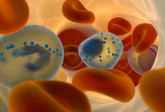Biosimilars
EMA approval for infliximab biosimilar Zessly
The European Medicines Agency’s (EMA) Committee for Medicinal Products for Human Use (CHMP) announced on 23 March 2018 that it had recommended granting marketing authorization for the infliximab biosimilar Zessly.
Strategies for development and validation of neutralizing antibody assays supporting biosimilars
A biosimilar is a biological product with equivalent safety, purity and potency as an originator reference therapeutic. As such, US Food and Drug Administration (FDA) and European Medicines Agency (EMA) guidelines have stepwise recommendations to demonstrate biosimilarity, which include immunogenicity assessment.
Biosimilar policies in Europe
Across European countries, differences exist in biosimilar policies, e.g. pricing and reimbursement procedures, levels of education, characteristics of covered population and incentivization of stakeholders, leading to variations in uptake of biosimilars and divergences in savings from biosimilars use. Experiences from different European countries with biosimilar policies may offer useful insights into current and future uptake of biosimilars.
EMA approval for trastuzumab biosimilar Kanjinti
The European Medicines Agency’s (EMA) Committee for Medicinal Products for Human Use (CHMP) announced on 23 March 2018 that it had recommended granting marketing authorization for the trastuzumab biosimilar Kanjinti.
Etanercept biosimilar SB4 less immunogenic than Enbrel
A research letter published in the British Journal of Dermatology suggests that the biosimilar etanercept SB4 is less immunogenic than the originator product, Amgen/Pfizer’s Enbrel (etanercept) [1].
Spanish gastroenterologists update biosimilar position statement
The Spanish Society of Gastroenterology (Sociedad Española de Patología Digestiva,SEPD) has updated its position statement on the use of biosimilars for inflammatory bowel disease (IBD) [1]. The changes in the society’s position reflect the increasing body of evidence supporting the safety and efficacy of biosimilars.
Insulin biosimilar Semglee gains EC and Australian approval
India-based Biocon and US-based partner Mylan announced on 28 March 2018 that they had received European Commission (EC) and Australian approval for their co-developed insulin glargine biosimilar, Semglee.
Government policies to maximize social benefit of biosimilars in countries with restricted access to biologicals
The potential value of biosimilars is dependent on patient access to originator biologicals in a given country. If the originator biological is reimbursed without any volume and access restrictions, the main objective of using biosimilars is to generate savings in health expenditures without compromising health outcomes. This disinvestment scenario is mainly applicable for higher income countries. If the original biological product is reimbursed with volume and access restrictions, the main objective of biosimilars is to treat more patients from the same healthcare budget, and hence generate more health gain. This special investment scenario is applicable for lower income European Union (EU) Member States and other middle-income countries. If the originator biological is not reimbursed at all, more affordable biosimilars may create an opportunity for public reimbursement, however, incremental budget is needed to generate more health gain. This investment scenario is applicable for low-income countries [1].
Trastuzumab biosimilar Ontruzant launched in the UK
Merck Sharp and Dohme (MSD), which is known as Merck in the US and Canada, announced on 8 March 2018 that it had launched the trastuzumab biosimilar, Ontruzant, in the UK.
Yoshindo and Lupin’s etanercept biosimilar completes trials
YL Biologics announced on 7 February 2018 that the global phase III trials of its etanercept biosimilar have been a success. YL Biologics is a joint venture of India’s Lupin Ltd and Japanese firm Yoshindo that was first announced in 2014 [1]. The etanercept biosimilar has met a successful outcome for rheumatoid arthritis treatment and hopes to compete for a share of the originator Enbrel’s global market of US$11 billion.












